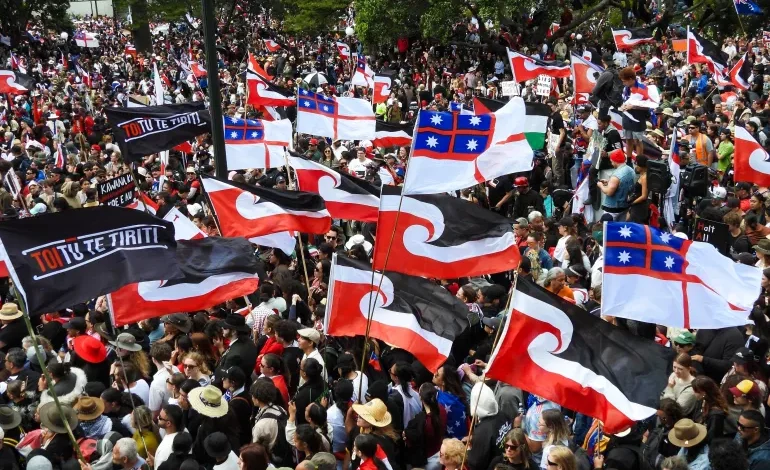Tens of Thousands Protest Controversial Treaty Bill in New Zealand

A massive protest of an estimated 42,000 people rallied outside New Zealand’s Parliament on Tuesday, vehemently opposing the Treaty Principles Bill introduced by the ACT New Zealand party, Al Jazeera reports.
The demonstration, the culmination of a nine-day hikoi (march) that traversed the country, saw participants dressed in traditional Maori attire, carrying flags and traditional weapons, and voicing their concerns about the bill’s potential to undermine Maori rights.
The bill, proposed by the junior partner in the centre-right coalition government, seeks to reinterpret the 184-year-old Treaty of Waitangi, a foundational document that granted Maori tribes significant rights in exchange for ceding governance to the British. Critics argue the legislation aims to reverse decades of policies designed to address historical injustices and empower Maori, who, despite comprising 20% of the population, experience disproportionately higher rates of deprivation, incarceration, and poorer health outcomes.
While the bill lacks the votes needed to pass – with coalition partners National and New Zealand First agreeing to support the first reading but not subsequent stages – its very introduction has sparked widespread outrage. Prominent figures like former Prime Minister Jenny Shipley have warned that the bill’s mere existence threatens to deepen societal divisions.
Tuesday’s protest highlighted the deep-seated anxieties surrounding the bill. Many protesters carried signs reading “Toitu te Tiriti” (Honour the Treaty), underscoring their commitment to upholding the Treaty’s principles. The intensity of the demonstration was further underscored by a dramatic parliamentary event on Thursday, where Te Pati Maori MP Hana-Rawhiti Maipi-Clarke ripped up a copy of the bill and performed a haka with her colleagues.
The Treaty of Waitangi continues to guide legislation and policy, with court rulings and a separate Maori tribunal expanding Maori rights over the years. The ACT party’s attempt to reinterpret this foundational document has ignited a fierce debate about the future of race relations and the ongoing reconciliation process in New Zealand.








